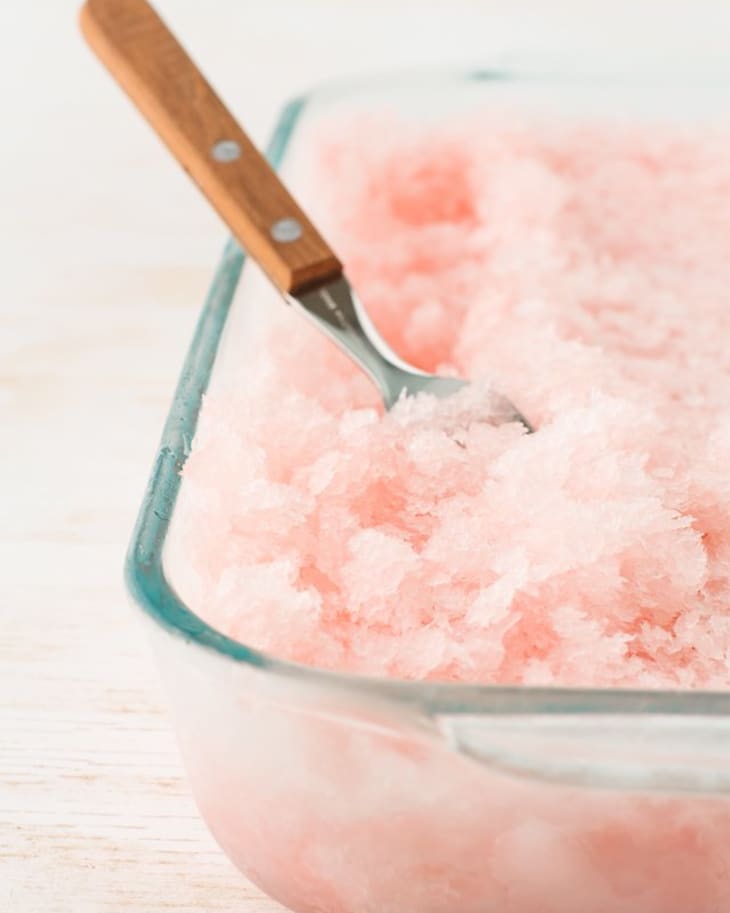Why You Can Store Vodka But Not Beer in the Freezer
Have you ever heard that alcohol doesn’t freeze, and wondered why?
Well, it’s actually a common misconception that alcohol doesn’t freeze. Alcohol does freeze, just not at the temperatures that home freezers are kept at. Here’s what it takes to freeze alcohol solid.
The Chemistry of Freezing Alcohol
Ethanol, the alcohol found in beer, wine, and liquors, has a melting point of -114ºC (-173ºF). That melting point represents the temperature at which ethanol passes from the solid “frozen” phase to the liquid state.
Most home freezers maintain temperatures between –23ºC and –18ºC (that’s –9ºF and 0ºF) in order to properly store food.
The melting point of ethanol implies that, if stored in a home freezer around -22ºC (0ºF), which is much warmer than –114ºC (173ºF), ethanol will remain liquid.
Of course, that melting point is assuming the sample is pure ethanol, which the alcohols in your liquor cabinet certainly are not. The amount of ethanol in the most common commercially-available alcoholic beverages (by volume) is:
- Beer: 4 to 6 percent, though some can go as high as 12 percent
- Wine: usually around 12 to 15 percent
- Distilled liquors (like gin, vodka, and whiskey): usually around 40 percent, but sometimes higher
The Differences in Freezing Beer, Wine & Liquor
In the case of beer and wine, the amount of alcohol is quite low, with the rest of the volume consisting of water and solutes (salts, sugars, etc.). Water has a melting point of 0ºC (32ºF). In your home freezer, beer and wine freeze because they are mostly, but not completely, water.
Beer and wine don’t freeze quite as “solid” as just water in your home freezer. So you can make ice cubes out of wine to store leftovers, but when you transfer those wine cubes to a zip-top bag for longer term freezer storage, they might turn into a bit of a sludgy mess in the bag over time.
On the other hand, hard liquors like vodka don’t freeze in your home freezer. If anything, they may appear slightly thicker when you chill them in the freezer.
Let’s Talk About Storing Alcohol in the Freezer
You can use the freezer to chill bottles of alcohol quickly, but for unopened bottles of wine and beer, be careful: if they freeze, unopened wine and beer bottles may burst from a combination of pressure and expansion of the liquid as it freezes, so limit their time in the freezer.
One More Note About Melting Points
Scientists use melting point temperatures as a reference to determine if a compound is pure, comparing the reference value from the literature to the experimentally-determined melting point. Usually, the melting point and the freezing point of most compounds are the same, but there can be small differences observed. In any case, most chemical handbooks list melting points of compounds, not freezing points, which is why I chose to discuss the melting points here.
So now do tell: what kind of alcohol lives in your freezer? And have you ever accidentally left a can of beer in the freezer overnight. It’s not pretty, is it?
